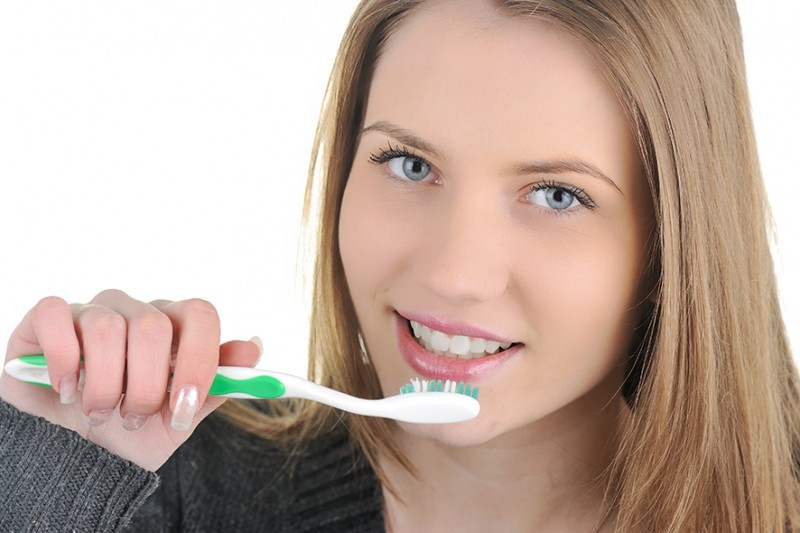If you are properly brushing your teeth after every meal, or at least twice a day, and if you are regularly flossing – preferably daily – you have established a good foundation for caring for your teeth and gums. Even then, your work is never done if you want to avoid gum disease, prevent tooth decay and cavities, keep your gums healthy and strong, and keep all your teeth in place. October is National Dental Hygiene Month, so that makes this a good time for a refresher on what you can do to take better care of your teeth and gums, because it does take daily discipline and a conscious effort. In all this, it's important to know that as we get older, there is constant wear and tear on our teeth – think chewing, grinding, and biting that wears away enamel, per webmd.com, meaning we should step it up in terms of our care.
Work on the Gums, Too
It's not just about the teeth, and using whitener doesn't substitute for any health-related aspect of oral care. Aesthetics are good for the smile, but tooth polish won't make them more durable. Gum disease is a concern as well. If plaque (composed of bacteria) isn't removed, consistently, it can produce gum soreness, swelling and bleeding. First comes gingivitis, which can then progress and develop into periodontitis, a more serious gum disease. It can harm gums and bones if left unchecked; in severe cases, it can necessitate the removal of teeth. Signs of gum disease include bleeding that results from brushing, receding gums, loose teeth and, yes, bad breath. Be sure to see your dentist for regular checkups – twice a year is recommended. Don't let the plaque buildup get out of hand.Oral Health Care Tips
Some of this is a review of the basics; some might be guidance you've never heard before. Either way, here are some things to keep in mind to optimize the care of your teeth and gums:- Drink plenty of water. This is great advice for almost any health consideration. As you get older, your production of saliva is reduced, leaving your mouth drier and your teeth more susceptible to decay. Prescription drugs can also contribute to dry mouth.
- Brush teeth properly. Brushing that is too vigorous can harm your gums, which are composed of sensitive tissue. Use gentle, circular motions to clean your teeth and gums, almost as if you're massaging them.
- Don't smoke. Users of tobacco products run an increased risk of developing gum disease.
- Beware birth control products. Per webmd.com, the use of oral birth control for women can cause gum problems such as soreness, swelling and bleeding. Women can also experience what's known as menstrual gingivitis, which appears before a menstrual period, and will usually fade away after the period begins.
- Rinse with mouthwash daily. Use an antiseptic mouthwash capable of killing bacteria that can otherwise lead to gum disease.
- Don't forget your tongue. The buildup of plaque can also take place on your tongue, giving rise to smelly breath and eventually other oral health issues, per healthline.com. Yes, brush your tongue each time you brush your teeth.
- Brush before bedtime. Consider it being thorough in ridding your mouth of all the germs and plaque that accumulated during the day.
- Give your toothbrush proper care. Rinse it with water when finished brushing your teeth and keep it stored in an upright position. Use a cup if you must. Don't share your toothbrush with others, or use theirs, and don't store it in closed containers, which can promote the growth of bacteria, mold and yeast, per Mayo Clinic.
- See your dentist. Get a checkup and cleaning twice a year. Stay on top of things.
Feed Yourself for Oral Health
Eating and drinking right is also an important part of taking good care of your teeth and gums. There are good foods/drinks to consume, as well as bad. Let's look at some:- Good. Dairy products, such as milk. They are a good source of calcium, which is essential for healthy, strong teeth.
- Bad. Citrus fruits and juices. Most contain vitamin C and other nutrients good for us, but they are also acidic and can corrode tooth enamel. Be especially wary of grapefruit and lemon juice.
- Good. Strawberries. Here's a fruit that's healthy for your teeth and can even be a good tooth whitener when mixed with baking soda. Strawberries contain malic acid, which can whiten enamel naturally.
- Bad. Hard candy. Biting down can be harmful by chipping teeth. Also, many hard candies contain citric acid.
- Good. Foods high in fiber, such as leafy green vegetables. These promote healthy digestion. All that chewing stimulates the production of saliva, which, effectively, provides a car wash for your teeth, per health.com.
- Bad. Pickles. These are usually produced by a process that involves acidic vinegar.

